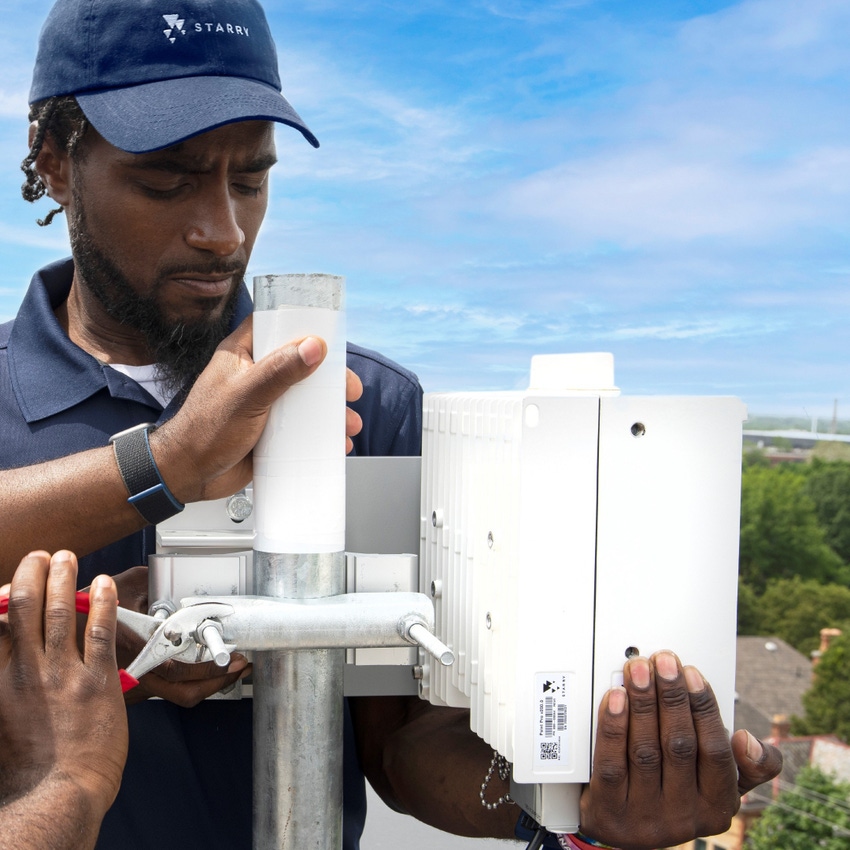Starry halts FWA buildout, lays off 500 employees
Fixed wireless access (FWA) provider Starry said it will lay off 500 employees in order to 'curtail our cash burn while we pursue strategic options,' according to CEO Chet Kanojia.

Fixed wireless access (FWA) provider Starry said it will stop expanding its network and will cut its workforce in half – from around 1,000 to 500 – in order to "curtail our cash burn while we pursue strategic options," according to CEO Chet Kanojia.
The company's announcement doesn't come as a surprise. Although Starry inked a deal with Cantor Fitzgerald for up to $100 million in funding, the company warned in August that it would need more cash after raising only half the proceeds it had hoped to score in its initial public offering (IPO) in March. This summer, the financial analysts at MoffettNathanson estimated Starry would need at least $1 billion to reach its overall network coverage goal of 13 million homes and 650,000 customers.
Starry's tricky financial situation became even more clear earlier this month when the company said it would drop out of the FCC's Rural Digital Opportunity Fund (RDOF). The company was set to receive nearly $269 million in US government subsidies in that program but would have to use that money to build fiber and fixed wireless services to 108,506 new locations across nine states.
Figure 1:  (Source: Starry. Used with permission)
(Source: Starry. Used with permission)
"The company made this decision in order to maximize liquidity while it continues efforts to raise additional capital; to sharpen its focus on its core mission of providing competitive broadband services primarily in dense areas; and in light of changed circumstances in the marketplace since its original decision to participate in the auction in 2020, including additional government subsidy programs that have or may target the same areas for which it won subsidy support in RDOF," Starry explained in an SEC filing earlier this week.
In its announcement Thursday, Starry's Kanojia emphasized that the company still plans to provide services to its existing customers.
"Let me be clear: Starry is open for business and laser-focused on continuing to serve our customers and drive our mission forward," he wrote in a letter published on the company's website. "Like so many other companies, we are making the tough calls now, and taking steps that will allow us to focus on financing the business over the long-term and continue growing across our current markets."
Starry also reported some of its preliminary third quarter results. The company said it grew its customer base to a total of around 91,000, up from 55,000 a year ago. Starry said it now covers almost 6 million homes and will work to expand its customer base among those locations. The company's penetration – the number of customers who have signed up for its services in the locations where it offers connections – sits at around 1.5%.
"We're focusing our energies on our core business: serving multi-tenant buildings in our existing dense urban markets," Kanojia explained.
As Light Reading previously reported, Starry launched in 2016 with grand plans to cover the world with broadband. Those plans narrowed at the beginning of 2018 to expand into almost two US dozen markets. But the company quietly acknowledged in 2019 that it would not reach that goal. Today, the company offers service in roughly half a dozen markets including Boston; New York City; Washington, DC; Denver and Los Angeles.
Related posts:
— Mike Dano, Editorial Director, 5G & Mobile Strategies, Light Reading | @mikeddano
About the Author(s)
You May Also Like




_International_Software_Products.jpeg?width=300&auto=webp&quality=80&disable=upscale)







